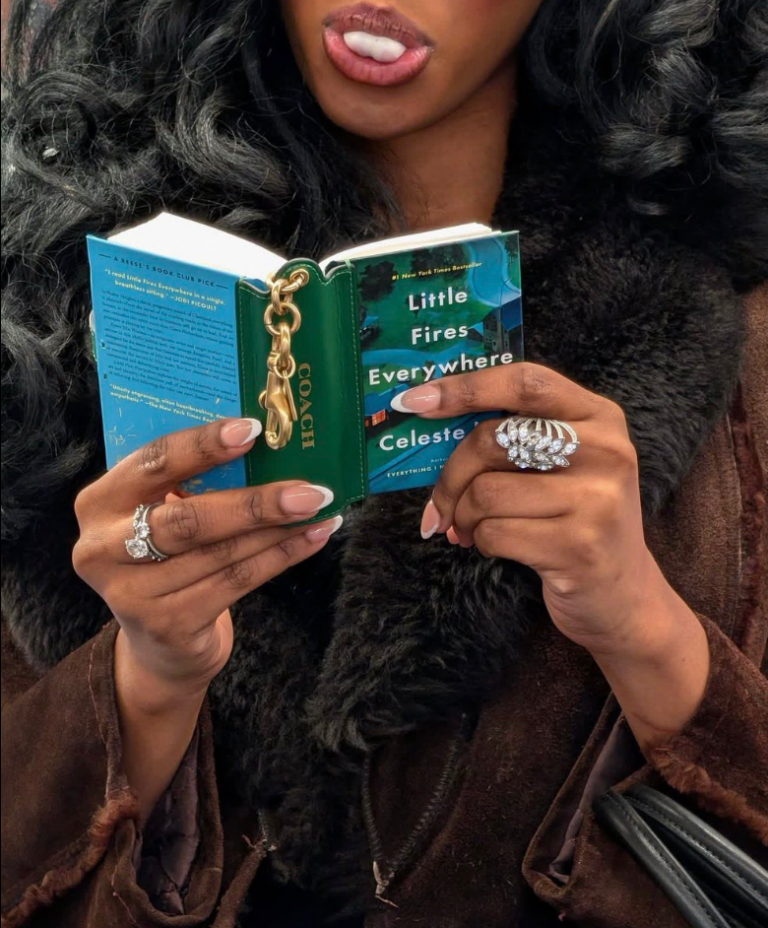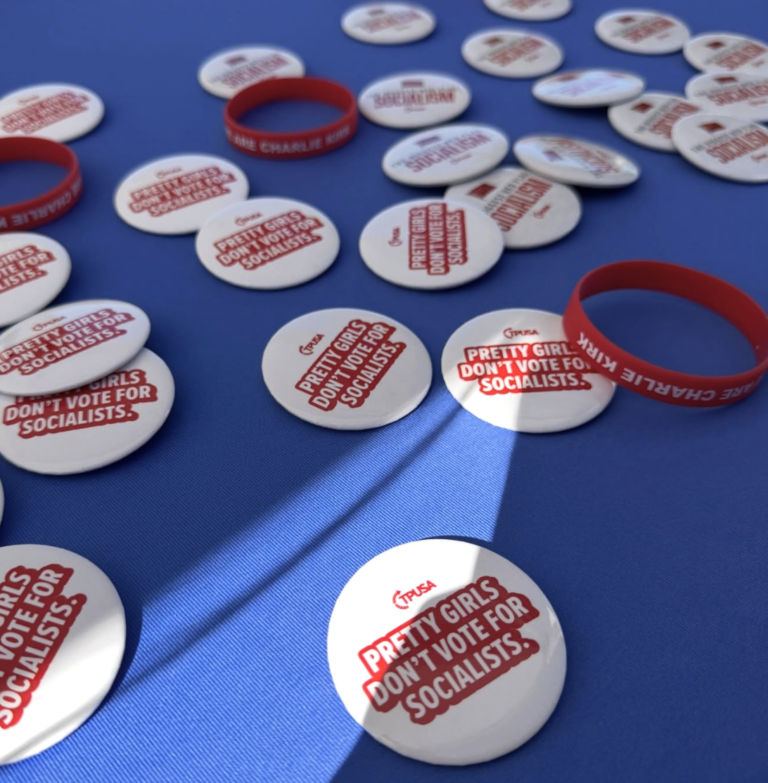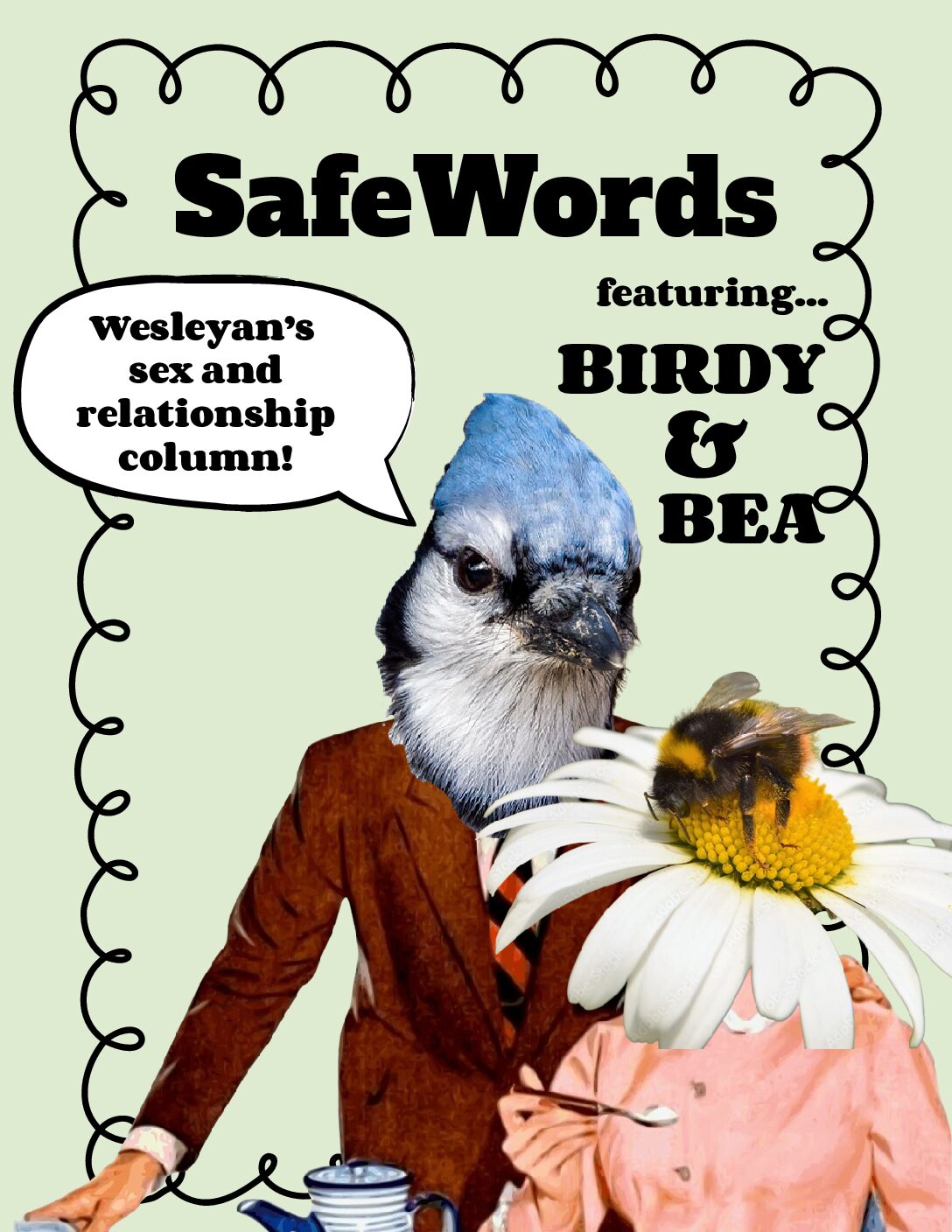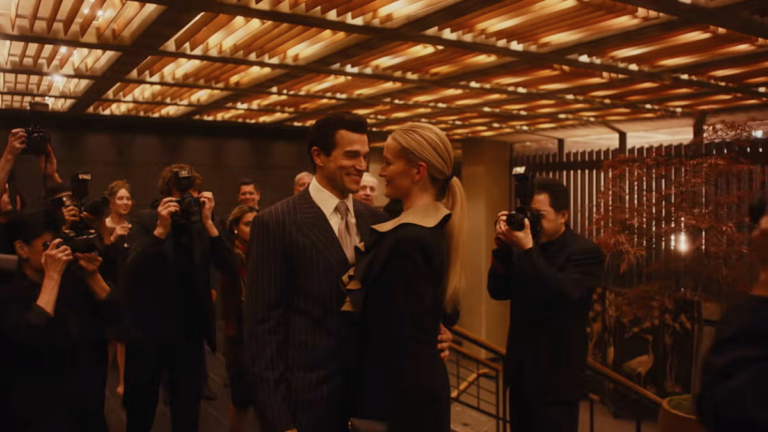The Promise of Intellectual Diversity
Attributing “safe spaces” to intellectual censorship is like attributing the American civil war to states rights. It’s propaganda. Michelle Alexander, in this year’s common reading, “The New Jim Crow,” opens our eyes to a social structure that disenfranchises and alienates our neighbors and family members from the American experience, a structure that has successfully done so under the protection of a bipartisan war on drugs. Academia’s war against safe spaces is not all that different from the so-called “War on Drugs,” as it is disguised under perhaps the most bipartisan philosophy of all time: freedom of speech.
The crusade against “safe spaces” has been led by those claiming to be protecting the breadth of intellectual discussion that is the college experience. From student coalitions at Princeton to a letter freshly penned to incoming freshman at the University of Chicago, “safe spaces” have been mislabeled as a kryptonite to free speech and the all-important exchange of ideas. But as someone who has freshly emerged from an orientation where I witnessed the fiery oration of an asexual peer and found the editors of the school newspaper looking for someone to write a sex column, I didn’t get the impression that ideas weren’t being exchanged or that ideas were being suppressed. Instead, I felt the tingle of a place that was ready to push the envelope and usher in the next era of intellectual discussion. I felt the aura of a quasi-utopian place that incorporates more speech, more discussion, more intellect, and more backgrounds than I have ever experienced.
The opposition’s argument is more than about defending free speech: it also paints a picture of younger generations as coddled and unprepared for the harsh realities of the world outside the campus bubble. And in all fairness, perhaps I am coddled. I never had to protest for my ethnicity, race, gender, or sexual orientation to be admitted to a college, and my voter registration process was straightforward. I also don’t like being called a spick and am more than willing to tell you that.
Part of what makes the world beyond the campus so “harsh” is its failure to accept the speech and intellectual concepts we college students have come to embrace. When the gender unicorn handout was given to me during orientation, I saw it as the University community’s acceptance of who you are, not some push towards intellectual conformity. We are accepting cultures and people from intensely different backgrounds and promoting the exchange and diversification of ideas. The community of the University is a melting pot of ideas, and the sizzles and bubbles echo in the dorm halls from dawn to dusk. Perhaps the best part is that I do feel safe and welcomed. After all, who would want to be in an “unsafe place”?
As I was walking from my second class back to the Butterfield dorms, I found myself talking to a classmate of mine who told me that in his first class, his professor remarked that it was the most diverse class he had ever seen. One of the professor’s final comments was that people had died to make that so. It is an eerie feeling knowing that so many of the fundamental aspects of our community were not always a part of the American experience. But even eerier is to know that more of the fundamental aspects of the Wesleyan community still are not. Yet, the communities that we form on our college campuses in many ways are reflective of the communities we will go out in the world and create. In an Op-Ed piece in the New York Times titled, “Political Correctness and Its Real Enemies,” the author Jim Sleeper argues that “a college is a civil society on training wheels,” and that “if collegiate civil societies are lurching into ditches as often now as the ‘free speech’ campaign claims, that’s partly because the larger society is, too.” The responsibility of pulling society out of these ditches is one that we college students will inevitably bear. “Safe spaces,” then, are a necessity, as they allow college students to safely deal with complex, and important issues.
Many who read this may feel as if I have skirted around an issue. They may feel as if speech insulting specific people is being suppressed. I don’t feel that way, and I have seen enough Trump signs in dorm room windows to say that with conviction. However, I do think that President Roth was onto something in his response to the University of Chicago’s letter: “And there are some things, after all, that a university should refuse to legitimate or dignify by treating them as fit subjects for academic discussion. When we make a subject part of a debate, we legitimate it in ways that may harm individuals and the educational enterprise. We must beware of the rubric of protecting speech being used as a fig leaf for intimidating those with less power.” Let us at Wesleyan celebrate both the freedom of speech and thought as well as the freedom to be who you are.
Perez is a member of the class of 2020.







What’s being ignored here is that “safe spaces” turn out to only be safe for certain kinds of speech. “Fiery oration” of an asexual classmate is going to be enthusiastically embraced. But as we saw last year, the mere suggestion that a college should not be in the business of regulating Halloween costumes can lead to a world-renowned professor being surrounded and cursed as not being “safe” enough. It is also a certainty that if Condoleeza Rice, an accomplished woman of color, were to be invited to speak at Wesleyan, a significant portion of the student body would do everything possible not just to debate her words, but to prevent her appearance. Finally we have the WSA’s thinly-veiled crusade against Argus for having the temerity to print an opinion piece critical of BLM. The inescapable reality of “safe spaces” at Wes and other campuses is that some views are safer than others, and that’s not about safety at all.
There will indeed be protest if Condoleeza Rice comes to campus—that has been part of the tradition of higher education for years now. Not because she is a libertarian on many issues, but because she has represented and/or aided Bush. It has been that way since the American New Left movement started in the 60s, so unless you can halt it indefinitely, take into account the fact that she will speak regardless of protest, the same way Hoda Kotb has spoken at Tulane commencement regardless of protest.
The WSA’s timing with the “crusade” coincides with the outrage post–opinion piece, but it wasn’t a crusade. Reduction of paper footprint—not to mention the re-appropriation of that $15,000 each year the Argus spent on paper—hardly makes for a crusade. I’d be surprised if the amount of recycle that the Argus has had over the years hasn’t amount to a literal hill of paperweight. (This is coming from an English major, and one that will get on paper copy of books unless otherwise forced.) And if anything, look at the most recent issue of the Argus: they wasted money on colour-printing the front and back pages, the front page having naught but a pixellated photo of the girls’ soccer team, the back the sports—sports!—page. That $15,000 can be much better spent, just from that one example.
And no, some views are not safer than others: it is the gutlessness of college students with other’d views that paint that picture. If you have a view, believe in it, and think it worth defending, then by all means, defend. If your view crumbles within a minute of scrutiny, it is not worth defending. And if people are dumb enough not to listen, then that is a whole other (and to be very frank, very American) problem. Those people are not, as their listening abilities suggest, worth your time anyway. (Personally, I have de-friended so many people who do not know how to listen, sometimes for the sake of defending this very newspaper, and I feel myself better-surrounded for it.)
Two of your points are simply not credible. WSA did not approach Argus looking for a reduction in printing. They made a full-on pitch to redistribute Argus funds to voices they considered more deserving based on a literary Hunger Games. Any doubts of their true intentions were erased by the intentional anonymity of the original backers of the proposal and the staggering disingenuousness of the supporters who did go on record.
Second, it is bordering on the obscene to suggest that Nicholas Christakis lacked courage when he engaged the students who surrounded him at Yale, cursed him, and ultimately drove him and his wife away. The treatment he received is on video and indisputable proof that some views simply are not safe on campus. Likewise no one should be subjected to the abuse Stascavage experienced at Wes following his article, and suggesting that somehow all this is due to a lack of courage is simply blaming the victim.
There are degrees by which incidents of the kind of Christakis happen. And maybe I’m from a different culture, but the behaviours of those students are similar to the behaviours of teenage bullies in the UK and in Australia. For the large part teachers and professors would harden up or ask students why they are doing what they are doing. And look, I’m not condoning bullying, but with regard to the question, most people bully to gain power, usually as a result of a lack of power in the first place. Socio-psychologically, does that mean anything to you? Even if that doesn’t (kudos), the degree by which the Wesleyan community protest has escalated has come nowhere near the Christakis incident, and I doubt it will. And if it doesn’t come to violence, toughen up and defend your verbal opinion.
The anonymity of the Argus resolution, now resolved, can be attributed to multiple reasons: first, that the students backing the resolution themselves fear prosecution (death threats were apparently sent post-identity revelation); second, that they would like to put a resolution out there for debate without focus on their identities (Alex Garcia, who wrote the resolution, has written and spoken many times his argument for the resolution); or third, that the anonymity could have been advised by other persons in the debate, either administrators, other WSA members, or parents. The only funds the resolution moves around vis-a-vis campus publications are the online advertising funds, incumbent still on the relative successes of the publications. The Argus no doubt will still be number one on that list, and as long as it performs, so it should remain. In a free-market economy that is how it works, no? The resolution itself distributes the funding opportunities and makes paid position to encourage students on FA to participate without wasting, so to speak, their time. Anonymity can be attributable to anything: you and I know that as well as anyone.
P.S. How post-fact are we!
Your statement on funding is simply false. You can go back to the original proposal and see that direct funding of Argus is being redistributed. Further I would direct you to Garcia’s disingenuous “justifications” for the Argus crusade which were beneath the dignity of the worst used car salesman or scam artist. Finally it seems highly unlikely even in an emotionally charged situation that the WSA would have received credible death threats over the funding for a school paper, I assume said threats were “reported” without evidence by the subjects?
Perhaps more astonishing is your notion that the subjects of bullying (your word) need to just “harden up” unless the bullying is accompanied by violence. You seem willing to accept behavior that would undoubtedly have resulted in expulsions if the colors of the participants were reversed. When you believe that all views are safe, but some views should be safer than others, well, you’ve demonstrated my point.
Demonstrated it how? Since when are there not hierarchies of views in societies? It has been that way since antiquity. Is it not very recently that homosexuality was still outlawed in this country? The views of philosophers like Plato persisted until three thousand years after his death with the Romantics finally doing away with his promulgation of vertical thinking. Don’t throw me that bullshit about how new it is that some views being safer than others or how unsafe you can feel when such a scenario is laid bare before your eyes. As social beings humans have accepted that fact of opinion hierarchy since times immemorial. The only thing that determines how the hierarchy is in our society as in any other society is how people believe it. We live on myths: deal with it. Otherwise throw away your money as protest of one of the most fundamental myths of human beings. That your society and the one I’ve embedded myself into by choice choose to redress bigotry by protest–not by violence as in the case of Yalies–is one reality I find myself particularly grateful for.
I’ve been bullied all my life. We Aussies just tell ourselves to harden up–I don’t know why it is so hard, especially since in essence you’re complaining about whites being bullied by people that the system designated by whites has bullied since the beginning of your country.
And no, Garcia’s ‘crusade’ is backed by incomplete arguments with few sources cited as evidence. That I do not disagree. But I’ve looked over the funding distribution of the WSA budget. Garcia himself has access to the past decade of budget records as a member of the WSA. If the Argus asks for $50,000 a year and wastes it on issues nobody picks up and gets recycled anyway, while the rest of the student groups on campus ask for a mere $200 for a POC event, that doesn’t help with anything, environmental or otherwise.
If you’re picking fault with my arguments, please avoid ad hominem attacks (likening a person whom you barely know to a con artist?). If you’re going to proceed with ad hominem, at least acknowledge what aspect of my argument you cannot refute, then I’ll be partially fine with your modus operandi. Otherwise, shut it.
When rational argument fails, try amping up the irrational and throw in a few straw men for good measure. Sorry, not buying it.
I will just add that I engaged Mr. Garcia directly at the time and
I doubt that I would find him any less mendacious if I got to know him better. My point on the selective use of so-called “safe spaces” to stifle certain views and enable abusive behavior is quite clear. Equally clear (and disappointing) is your support for exactly that.
What part of that is irrational?
My god you are such a spineless sissy. Grow a backbone. Jesus christ. How can you even function? No wonde ryou need safe spaces. You will never be able to handle life, and that’s why you need big government democrats to create jobs for other sissies like yourself in “Chief Safe Space officer” useless positions. Grow up, you are an adult, not a simpering child.
You mean “spineless cis-ey,” not “spineless sissy,” right?
I second Ralphiec88’s suggestion that though the “‘Fiery oration’ of an asexual classmate is going to be enthusiastically embraced” at Wesleyan, and I’m also certain that advocacy of the position on gay marriage held by Barack Obama and Hillary Clinton until 2012 would be considered hate speech and not a fit subject for academic discussion.
What, exactly, is anyone at Wesleyan, intelligent adults all, so threatened by that they need an actual safe space to retreat to? And most importantly, who gets to decide which ideas are not fit for academic discussion?
To compare this insanity to Jim Crow. Wow. Did you know during the actual civil rights movement people fought AGAINST segregation? Now you are righting for it? I bet you even support those Claremont students who requested non white roommates only. You won’t see that as racist, because your liberalism infects your thought process.
Unrestricted speech only in limited times and in limited areas!
Because otherwise it would be free speech… the worst of all things!
OMG can you imagine the horror of people having free speech without their social betters controlling all proper discourse to determine the narrative?
MADNESS!!!
We can NOT have freedom and liberty on a US campus!
Oh wait, once we leave campus; the outside world has free speech?
Hm, do we learn to live with it? Or try to destroy all free speech in the country?
Hey, I’ve got it! There are already countries that don’t allow free speech. Hooray!
Can I recommend you leave college and head to say North Korea?
Think about it, then you NEVER have to deal with free speech; and we can keep it here.
WIN-WIN. What’s not to love?
Their is no safe space “guarantee” in this world. Unless you are in your own house, and even that is questionable with urban America’s epidemic crime levels.
love this article! people who crusade against safe spaces are crusading for a lack of diversity, and any school, business, or platform that wants to engage a diverse group of people absolutely should ensure that hate speech and fear doesn’t prevent students who are disadvantaged from getting involved. The real world has safe spaces; business, places of employment, and social media platforms have rules about hate speech and harassment. There are laws in place to aid people with disabilities and mental illnesses. The idea that safe spaces are some new wave liberal hippie coddling thing is an incredibly ignorant and stupid notion. Creating safe spaces lets people who are often not able to safely express freedom of speech or even freedom of existence reach their full potential.
Who should be in charge of declaring which speech is “hateful” versus “safe”? The mob? The majority?
Opinion police selected by votes of people who’ve left at least one class in tears
A university is designed to be a place where all viewpoints are welcome. Hate speech is not what anyone is talking about. The critique of safe spaces is the idea that a conservative speaker can be shouted down, not because he’s engaging in hate speech, but because his ideas make certain people feel unsafe, i.e., they don’t agree.
That “design” is not inherent to the concept of what a university is. Remember, universities in the past have excluded on the basis of gender and race, yet they were still universities.
That is beside the point. A university that discriminates is still a university. A university that allows only for orthodoxy is not a university, it is a church.
You falsely defined the purpose of a university as a place designed where all viewpoints are welcome. I pointed that out, then you redacted.
Falsely? What sort of university chooses to allow only the viewpoints that are approved by those in power? How would that allow for learning and the expansion of knowledge?
I don’t know what you think I redacted. I stand by my point that a “university” that restricts what it’s members are allowed to think and speak is not worthy of the name. It’s comfortable if one agrees with the approved viewpoint, but he will learn little, and will not have his preconceived notions challenged.
We represent the Maoist Shining Path Oppressed Students Clacque (MSPOSC). Our demands on this issue are that the MSPOSC should have final authority on all academic curricula to ensure intellicentual and ideological purity and correctness.
Furthermore, after this review is complete, we propose a book-by-book and periodical-by-periodical review using the developed methodologies to protect students against the anguish and fear engendered by exposure to ideas and viewpoints which may be alien to agreed-upon ideologies.
We also request university funding to pay for a 14-member committee of our nominees to accomplish these aims within a 90-day period.
Tangible media (for example, books) espousing potentially distressing opinions or narratives will be burned to heat University buildings to wean the University away from the Zionist, Imperialist capitalist running dogs who control the current fuel oil production and distribution systems.
We represent the Maoist Shining Path Oppressed Students Clacque (MSPOSC). Our demands on this issue are that the MSPOSC should have final authority on all academic curricula to ensure intellicentual and ideological purity and correctness.
Furthermore, after this review is complete, we propose a book-by-book and periodical-by-periodical review using the developed methodologies to protect students against the anguish and fear engendered by exposure to ideas and viewpoints which may be alien to agreed-upon ideologies.
We also request university funding to pay for a 14-member committee of our nominees to accomplish these aims within a 90-day period.
Tangible media (for example, books) espousing potentially distressing opinions or narratives will be burned to heat University buildings to wean the University away from the Zionist, Imperialist capitalist running dogs who control the current fuel oil production and distribution systems.